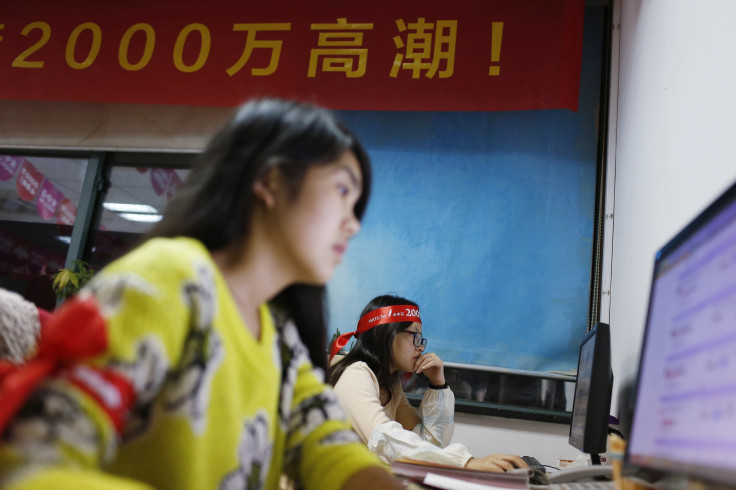Alibaba's Tmall Offers U.S., European Retailers Gateway To Chinese Shoppers

Western retailers aiming to woo Chinese shoppers are increasingly turning to Alibaba’s Tmall. The hope is that China’s largest online marketplace—a sort of Ebay of the East—will not only give global brands better access to Chinese consumers, but also help companies stamp out counterfeit versions of their products sold in China.
The problem is that China’s fifth most visited website often facilitates sales of knock-off products, including imitation designer handbags, without permission from the brands. Tmall doesn't own the merchadise sold on its site, giving vendors control over what they post for sale. But as more global brands talk with Tmall, the company is promising them it will flag and eliminate fraudulent goods posted to crack down on those unauthorized sellers.
Launching an online storefront on Tmall, with its 50 percent share of China’s $300 billion e-commerce market, seems the best way to seal a brand as the sole authorized seller of a product. That was the primary motivation behind French skin care brand L’Occitane’s recent decision to forgo a Chinese website of its own and launch a Tmall store, which will cost between 0.5 and 5 percent of revenue in fees to Tmall.
“This is the only way we can assure that expired and damaged goods are not sold,” Andre Hoffmann, Asia-Pacific president for L’Occitane, told the Wall Street Journal. “Our goal is to be the only authorized seller of L’Occitane products” on Tmall.
L’Occitane is the latest large foreign brand to open a Tmall storefront, following Apple, Burberry, Costco, Nike, Uniqlo, Zara and others. “In emerging markets like China, there isn’t as much policing when it comes to fakes,” said Dave Rekuc, marketing director for Princeton-based Ripen eCommerce, which helps retailers sell goods online. Tmall’s policing of fakes “has enticed brands, so they must be doing a better job than the status quo,” he said.
Alibaba has built a reputation for guaranteeing the quality of the goods it offers. “In a country without small claims courts or better business bureaus, Alibaba founder Jack Ma brought law and order to the Wild East with indelible customer comments, incorruptible ratings and rock-solid return policies,” Ernie Diaz, a partner at Beijing-based digital marketing firm Web Presence in China, writes.
For the past three years, Alibaba’s public relations team has reached out to U.S. businesses to advertise China’s Singles’ Day on Nov. 11, Rekuc said. This year, 11/11, also known as Singles’ Awareness Day (SAD), racked up $9.3 billion in global sales. Cyber Monday, the second-largest online sales day, totaled only $2.68 billion in global sales this year. Alibaba’s exposure to Americans has skyrocketed this year with a record Wall Street IPO in September.
But while Western retailers and shoppers know about Alibaba, Chinese consumers do not know much about Western brands or where to purchase the products online. Tmall is already a trusted e-commerce site in China.
Even if a retailer opted to sell in China through its own website, it would need to find a payment method that Chinese shoppers trust. Alibaba’s Alipay, China’s version of PayPal and integrated into Tmall, is the most obvious answer. And Alibaba’s Weitao, a social shopping app, allows Chinese social media users to buy easily from Tmall stores.
And unlike Amazon.com, Tmall doesn’t directly compete with retailers. Amazon purchases some goods from wholesalers and manufacturers to resell them, but Tmall only facilitates exchanges. Though Tmall requires retailers to pay commission based on the product being sold, the fees are relatively small. For clothes, the commission is about 5 percent. Compared with Amazon.com’s commission on apparel of about 15 percent, Tmall is brand- and retail-friendly, Rekuc said.
“They’re keeping commission low to entice brands,” he said. “In the years to come when they reach critical mass, they obviously have the right to up their fees, but for now they’re highly profitable and much more interested in expanding market share.”
© Copyright IBTimes 2025. All rights reserved.






















